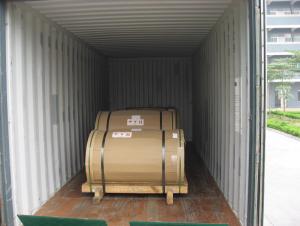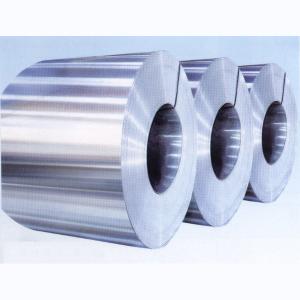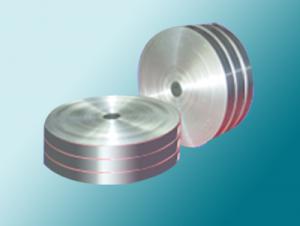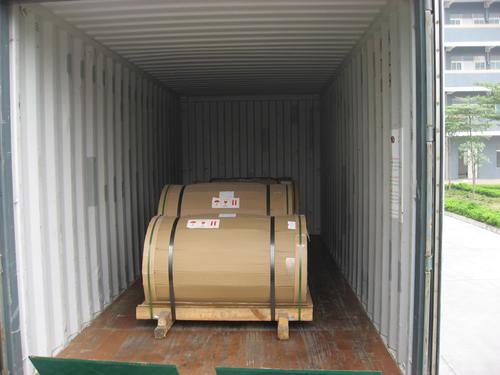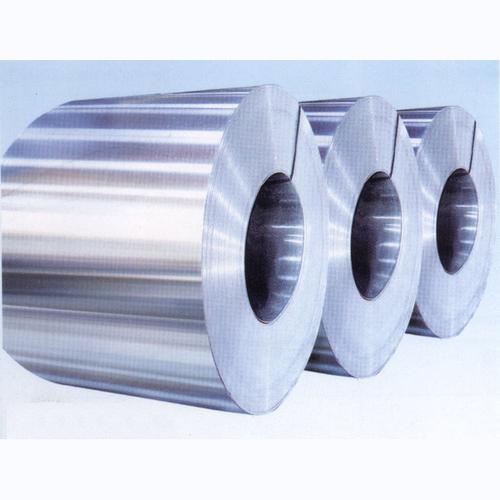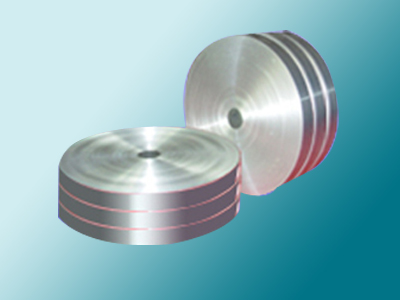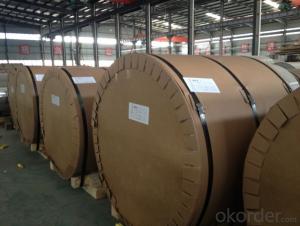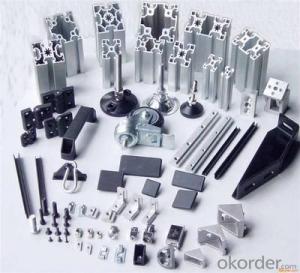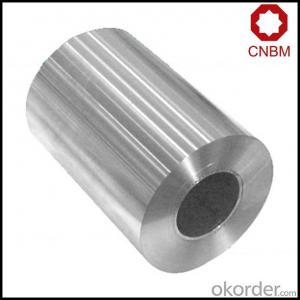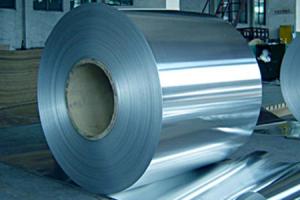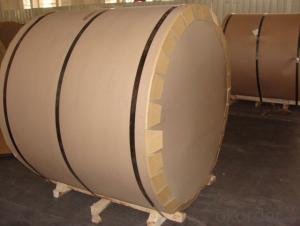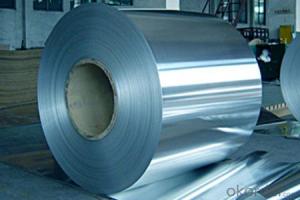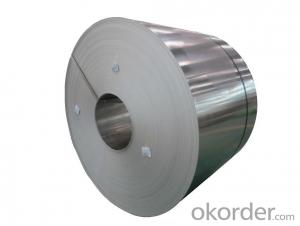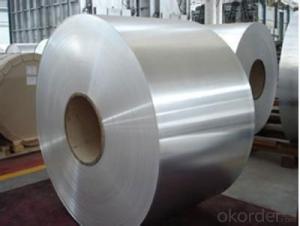All Aluminum Coil - AA1XXX Mill-Finished Aluminum Coils C.C Quality for Construction
- Loading Port:
- Shanghai
- Payment Terms:
- TT OR LC
- Min Order Qty:
- 5 m.t.
- Supply Capability:
- 10000 m.t./month
OKorder Service Pledge
OKorder Financial Service
You Might Also Like
Specification
1.Structure of AA1xxx Mill-Finished Aluminum Coils C.C Quality Used for Construction Description
AA1xxx Mill-Finished Aluminum Coils C.C Quality Used for Construction is one semi-finished aluminium material. This strip can be rolled down to aluminium foil.The final thickess can be 5-20 microns. Aluminium foil is soft, ductile and with a silver-white luster which can be widely used in a large scare of fields.
2.Main Features of AA1xxx Mill-Finished Aluminum Coils C.C Quality Used for Construction
1)excellent quality,good credit
2)competitive price,comfortable service
3)Samples for free
4)fast delivery,small order accepted
5)Good rust resistance
6)clean, flat, no wrinkle, no scratch, oil free.
3.AA1xxx Mill-Finished Aluminum Coils C.C Quality Used for Construction Images
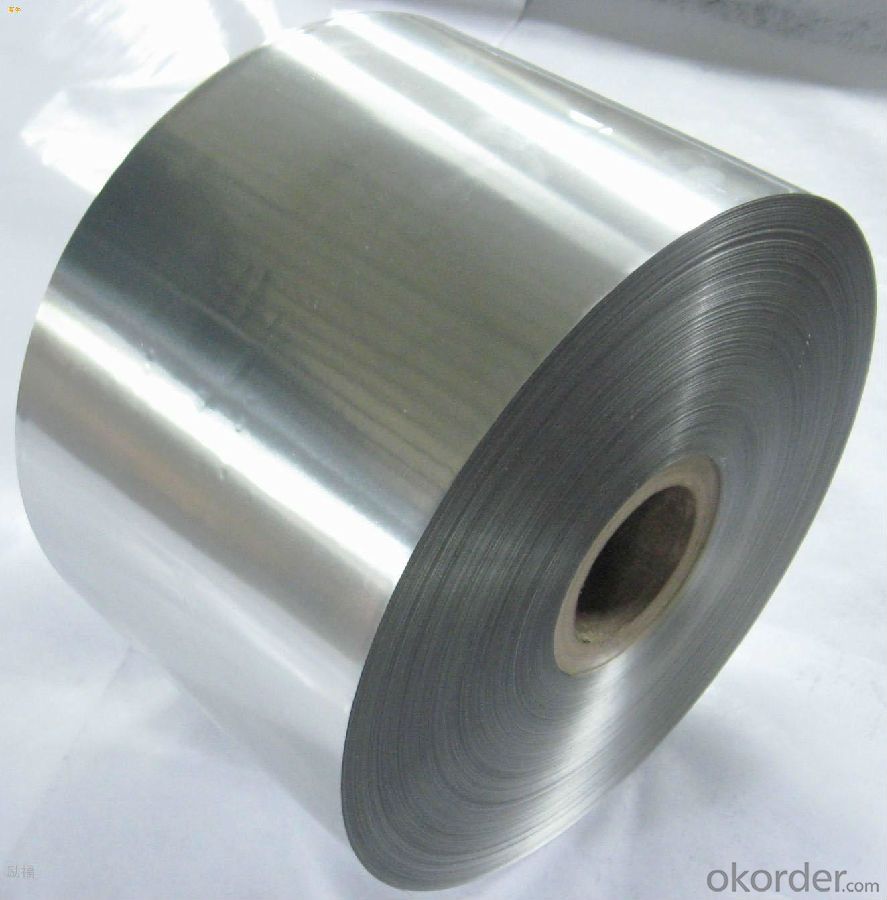
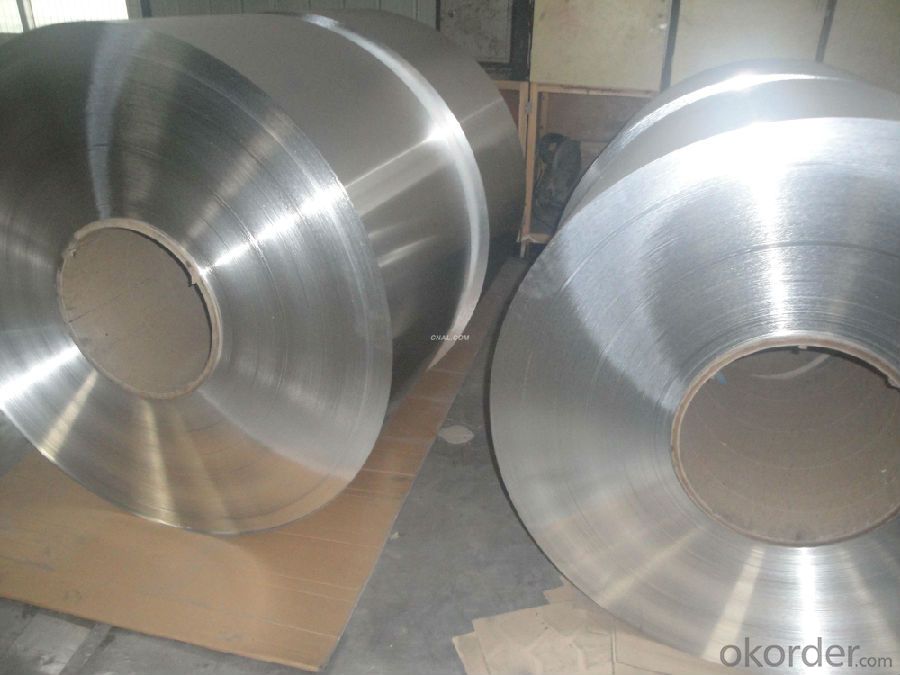
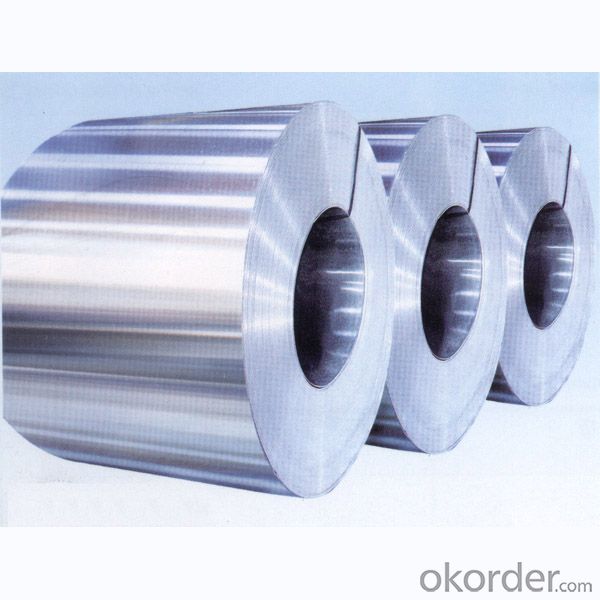
4.AA1xxx Mill-Finished Aluminum Coils C.C Quality Used for Construction Specification
Alloy | AA1xxx (AA1050, AA1060, AA1070, AA1100 etc. |
Temper | H14, H16, H18, H22, H24, H26, H32, O/F |
Thickness | 0.2mm -- 100mm |
Width | 30mm -- 1700mm |
Standard | GB/T 3880-2006,EN,ASTM,JIS |
5. FAQ of AA1xxx Mill-Finished Aluminum Coils C.C Quality Used for Construction
What is the quality standard?
---Usually our standard is GB3880-2006
What is the largest width?
---It is 2300mm
What is the MOQ?
---Usually we can accept 80 tons.
- Q: How do aluminum coils contribute to the thermal conductivity of products?
- Aluminum coils play a vital role in enhancing the thermal conductivity of various products, thanks to their exceptional thermal properties. These coils, crafted from aluminum, excel at transferring heat with great efficiency. Compared to common metals like steel or copper, aluminum boasts significantly higher thermal conductivity. Consequently, when incorporated into products, aluminum coils swiftly and effectively move heat from one area to another. For instance, in air conditioning units, aluminum coils find frequent use in HVAC systems. As refrigerant courses through the coils, the aluminum material rapidly absorbs heat from the surrounding air. This process facilitates efficient cooling, swiftly removing heat from the air and expelling it, thereby creating a more comfortable indoor environment. Likewise, in heat exchangers, aluminum coils aid in the transfer of heat between two fluids or gases. The aluminum's strong thermal conductivity ensures efficient heat exchange, guaranteeing the desired temperature is reached promptly. Additionally, the lightweight nature of aluminum coils makes them easier to handle and install in a range of products. This characteristic proves particularly advantageous in industries such as automotive, aerospace, and electronics, where weight reduction is critical. In conclusion, aluminum coils make a significant contribution to the thermal conductivity of products by efficiently transferring heat, thanks to their impressive thermal properties. Furthermore, their lightweight nature enhances their versatility and practicality across multiple industries.
- Q: What are the different coil packaging sizes available for aluminum coils?
- The customer's specific needs and requirements determine the available packaging sizes for aluminum coils. However, standard coil packaging sizes are generally found in the market. These sizes vary in dimensions and weights, ranging from small to large. Various common coil packaging sizes for aluminum coils include: 1. Small coils: These serve smaller applications or projects and typically have a diameter of 200-300mm and a weight of 50-150kg. 2. Medium coils: Suitable for medium-sized applications and projects, these coils usually have a diameter of 300-600mm and a weight of 150-500kg. 3. Large coils: Designed for larger applications or projects requiring a substantial amount of aluminum, these coils typically have a diameter of 600-1200mm and a weight of 500-2000kg. It's important to note that these are general guidelines, and the actual coil packaging sizes may vary depending on the manufacturer and specific customer requirements. Moreover, unique project needs often allow for the request of custom packaging sizes.
- Q: What are the standard widths of aluminum coils?
- The standard widths of aluminum coils can vary depending on the specific industry and application. However, in general, the standard widths of aluminum coils range from 12 inches (30.48 cm) to 60 inches (152.4 cm). These standard widths are commonly used in various industries such as construction, transportation, and manufacturing. It is important to note that customized widths are also available in the market to cater to specific project requirements.
- Q: Explain how aluminum coil interacts with magnetic fields and what effects can be observed.
- <p>Aluminum coil itself does not have a direct relationship with magnetic fields in terms of magnetic properties, as aluminum is not a magnetic material and does not get magnetized. However, when an aluminum coil is part of an electrical circuit, it can interact with magnetic fields in the context of electromagnetic induction. If a changing magnetic field passes through an aluminum coil, it can induce an electromotive force (EMF) or voltage in the coil, according to Faraday's law of electromagnetic induction. This induced voltage can cause an electric current to flow through the coil if it is part of a closed circuit. The aluminum coil's primary interaction with magnetic fields is thus through the generation of electrical current when used in conjunction with an electric circuit.</p>
- Q: This question asks about the suitability of aluminum coils for outdoor applications based on their weight and strength.
- <p>Yes, aluminum coils are lightweight and strong, making them suitable for outdoor use. Aluminum is known for its high strength-to-weight ratio, which means it can withstand significant stress without adding much weight. It also has excellent corrosion resistance, which is crucial for outdoor applications where exposure to weather elements can lead to degradation. Additionally, aluminum's malleability allows it to be easily shaped and formed into various configurations for different outdoor structures and applications. Its light weight also reduces the load on structures, which can be an advantage in many construction scenarios.</p>
- Q: My favorite deodorant contains aluminum. It smells really good and it works really well.My mom doesn't like me using it because it contains aluminum.So I got aluminum free. It doesn't smell at all (I can't seem to find fragrant aluminum free deodorant) and it doesn't work as well, for some reason.I want to keep using the one with aluminum, but will it be harmful to me in the future?
- aluminum is an antiperspirant so it stops you from sweating. if you don't have a wetness problem you could just use regular deodorant check out Jason's natural products or kiss my face cosmetics
- Q: Are there any limitations to the maximum coil length of aluminum coils?
- The maximum length of aluminum coils is subject to certain limitations. Factors that affect the maximum coil length include the thickness and width of the coil, the strength and tensile properties of the aluminum alloy, the equipment used for coil processing, and the intended application of the coil. One limitation is the strength and ductility of the aluminum alloy. Aluminum alloys with higher strength and lower ductility may have restrictions on the maximum coil length due to the risk of coil breakage or deformation during processing or handling. Another limitation is the coil processing equipment. The maximum coil length is often determined by the size and capabilities of the equipment used for slitting, cutting, or forming the coils. If the equipment has limited capacity or is not designed for longer coils, it may not be able to effectively handle or process longer lengths. The intended application of the coil can also impose limitations. For example, in the automotive industry, there may be restrictions on the maximum coil length based on the size and weight limitations of the vehicles. Moreover, logistical factors such as transportation and storage can also impose limitations. Longer coils may be more challenging to handle, transport, and store, which can increase the risk of damage or pose challenges in terms of logistics and space requirements. Therefore, it is crucial to consider various factors such as alloy properties, equipment capabilities, application requirements, and logistical considerations to determine the practical limitations of coil length for a specific situation, as there is no specific universal limit to the maximum coil length of aluminum coils.
- Q: Roll presented above 1 complete circles are brineling put on work roll after the new rolling, less than 12 volumes in the aluminum surface will be presented in the corresponding position of a straight roller, a roller indentation in the above, check the work roll above a pit. Replace the upper support roll for only a few days. Want to know what's going on?Should not be bearing problems, because the bearings have been used for almost 4 years, it should not be bearing problems, and now they are suspected of bending cylinder seal problems, oil seepage phenomenon.
- For a few days and roll crushed?Whether or not the work roll tilt and the positive and negative camber of the roll are controlled, the work roll is running abnormally, and the backup roller is rubbed.
- Q: Can aluminum coils be used for solar panel installations?
- Indeed, solar panel installations can utilize aluminum coils. Aluminum, renowned for its lightweight nature, durability, and corrosion resistance, is frequently employed within the solar industry. As framing materials for solar panel mounting, aluminum coils furnish a robust and enduring support structure. Moreover, they boast exceptional heat dissipation properties, crucial for optimizing solar panel efficiency. Notably, aluminum coils are also user-friendly, rendering the installation process more convenient. All in all, opting for aluminum coils in solar panel installations proves to be a widely favored and efficient decision.
- Q: What is the role of aluminum coils in the construction of aircraft?
- The role of aluminum coils in the construction of aircraft is crucial and multifaceted. Aluminum is the preferred material for manufacturing aircraft due to its exceptional properties such as lightweight, durability, and corrosion resistance. Aluminum coils, specifically, are used extensively in various parts of an aircraft, including the fuselage, wings, and structural components. One of the primary functions of aluminum coils is to provide structural strength while maintaining a lightweight design. By using aluminum coils, aircraft manufacturers can reduce the overall weight of the aircraft, leading to improved fuel efficiency and increased payload capacity. This is especially important in aviation, where every ounce of weight reduction can have a significant impact on performance and operational costs. Additionally, aluminum coils play a crucial role in the aerodynamic design of an aircraft. These coils are used to shape the wings and other aerodynamic surfaces, allowing for better airflow and reduced drag. The flexibility of aluminum coils enables engineers to create complex, curved shapes that optimize the aircraft's aerodynamic performance, resulting in improved maneuverability and reduced fuel consumption. Another vital aspect of aluminum coils in aircraft construction is their corrosion resistance. Aluminum naturally forms a protective oxide layer when exposed to air, making it highly resistant to corrosion. This property is essential in ensuring the longevity and structural integrity of the aircraft, particularly when exposed to harsh environmental conditions, such as high-altitude or coastal regions. Furthermore, aluminum coils are used in the fabrication of heat exchangers, which are crucial components in the aircraft's cooling and ventilation systems. These coils efficiently transfer heat either to or from the air, depending on the system's requirements, allowing for effective temperature control within the aircraft's cabin and engine compartments. In conclusion, the role of aluminum coils in the construction of aircraft is indispensable. They provide structural strength, contribute to aerodynamic efficiency, offer corrosion resistance, and facilitate efficient heat exchange. The utilization of aluminum coils allows for the development of high-performance, reliable, and fuel-efficient aircraft essential for modern aviation.
Send your message to us
All Aluminum Coil - AA1XXX Mill-Finished Aluminum Coils C.C Quality for Construction
- Loading Port:
- Shanghai
- Payment Terms:
- TT OR LC
- Min Order Qty:
- 5 m.t.
- Supply Capability:
- 10000 m.t./month
OKorder Service Pledge
OKorder Financial Service
Similar products
Hot products
Hot Searches
Related keywords
